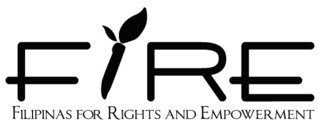The Corruption of Power
ISSUE ANALYSIS No. 20
Series of 2007
Power breeds corruption, and corruption anesthesizes.
The Corruption of Power
By the Policy Study, Publication, and Advocacy
Center for People Empowerment in Governance (CenPEG)
Oct. 23, 2007
Seen from all angles, the latest scandal that has wracked the presidential office should only lead to either an impeachment or resignation by its occupant. But if Mrs. Gloria M. Arroyo goes, will that have solved the real problem? Will her departure and, possibly prosecution, guarantee that briberies, malversation, fraud, and nearly all other violations of every provision of the Constitution, the Anti-Graft and Corrupt Practices Act, and other laws involving this high office won't happen again?
A senator last week called for the President's resignation, saying that her term as chief executive is beyond repair and beyond redemption. But that is just looking at one side of the coin. Having been in public service himself for decades and with a record of sorts as a critic of authoritarianism and misgovernance, he should be able to see the whole picture that it is the entire government institution run by the elite that is beyond repair and beyond redemption.
In this government, every scam and every scandal that hogs the headlines throws Arroyo in the spotlight. The heat generated by the $330-million ZTE national broadband scandal has not simmered down and there she was embroiled in yet another reported bribery. Exposes and admissions made by at least three governors and two House members told of an Oct. 11 meeting at the presidential office where 190 pro-administration congressmen and 50 governors were given brown bags each containing cash ranging from P200,000 to P500,000. The money, according to some estimates, totaled P150 million to P200 million. The provincial executives were told that the "cash gifts" were for "barangay projects"; those given the congressmen were supposed to preempt another impeachment against the President. There were no receipts, just cold cash, and the Department of Budget and Management (DBM) denied it ever came from its office.
Based on the admissions and evidences shown, the distribution of "cash gifts" constituted bribery. If it was intended for "barangay projects," it was still illegal under the election code which prohits fund releases during election period. The barangay elections take place on Oct. 29.
A garbage of filth
The bribery scandal has unwrapped a garbage of other filth. There were reports about how several congressmen would regularly receive similar cash gifts as "productive bonuses" and during the two impeachment complaints against the President; and of how local officials after meetings in Malacanang would leave clutching thick envelopes. "Pork barrels," the release of which is now under the DBM, were being collected only by pro-Arroyo congressmen. There were also stories, not the least denied, about the President meeting Catholic bishops where money changed hands for "charitable projects" and how Palace assistants keep a birthday list of some 100 eminent clergymen.
The stories about crooks, thieves, and liars in high places go deeper. As the new controversial bribery sparked renewed calls for presidential resignation and impeachment, GMA News Research revealed a Commission on Audit (CoA) report admonishing offices under the President to account for "sundry questionable expenses" in 2006. The CoA, the TV report said, asked the offices to account for donations for calamity areas diverted to spruce up the Palace golf course, huge amounts of unliquidated cash advances, loans issued without records, and questionable purchases of supplies, equipment, and property. Based on the GMA story, the unaccounted expenses amounted to at least P2.074 billion.
The limelight captured by the scams and scandals involving the President for several weeks had stirred another public outrage with a new report by the anti-graft watchdog, Transparency International, where the Philippines dropped several notches lower in corruption rating. The Philippines was ranked earlier as one of the top countries in Asia in terms of corruption. The report came on the heels of allegations of corruption and illegal gambling money involving the President, her family and cronies, questionable transactions, election fraud involving billions of government funds, and other cases that took place since Mrs. Arroyo came to power in 2001.
Abuse of power
The culture of impunity that has marked the extra-judicial killings of dissenters and presidential critics rears its ugly head in another form here: the impunity of abuse of presidential power. Although the scams and scandals wracking the present regime have deep roots in the culture of patronage and clientelism practiced by all presidents since Manuel Roxas, Mrs. Arroyo brings into this system another dimension. Political survival due to lack of constitutional legitimacy, as a result of election cheating in 2004, has forced Arroyo to rely on the support of the military and police as well as on patronage politics, in the case of pro-Malacanang legislators and LGU officials. To maintain this support mechanism, patronage system is given full play in which money changes hands – often, as alleged, sourced from public funds – coupled with preferential treatment in multi-million development projects and other incentives.
The beneficiaries, in turn, consider this as part of political culture in which presidential dole-outs help sustain support from their network of relatives and constituencies, as well as to guarantee electoral votes for the President and her allies. So deeply embedded is this web of pay-offs and dole-outs that it has led to the paralysis of constitutional checks and balances, with, for instance, Congress which is dominated by pro-Arroyo allies using their numbers to block impeachment complaints against their patron. As alleged, even some members of the Catholic hierarchy have been trapped in this culture so that the voice that they used to lend in the ouster of Marcos in 1986 and Estrada in 2001 is now sealed. Power breeds corruption, and corruption anesthesizes.
For decades, the Philippines has earned a notoriety in the realm of corruption precisely because of the wrongdoings of its top bureaucrats, whether civilian or military, and where graft and corrupt practices, like termites, devour every layer of the bureaucracy and every unit of government. Key institutions that are supposed to check this malady – including the conservative Catholic hierarchy, business, and some "civil society" technocrats – have also been infested with these corrosive and anti-people practices.
The poor as victims
Yet the money that is lost to graft and corruption would have sent millions of poor children to school or increased the wages of government employees, including rank-and-file military and police forces. The funds squandered because an allegedly plunderous president must stay in office could have saved the lives of millions of sick people who have never seen any doctor in their entire lives.
Government has been in the hands of the ruling elite ever since it was introduced by the Americans as an adjunct of their colonial rule. Name any president, a member of Congress, or a local official and chances are big that he or she comes from a political dynasty whose rise to power is made possible by the considerable share of economic wealth it has appropriated. Not for reasons of making this country a better place to live in or for some altruistic goals of freeing the poor from centuries of bondage of class exploitation and oppression do they get themselves elected or appointed – chances are, through fraud or influence - to the niches of power. They are in government because political or bureaucratic power enables them to ransack public funds and inflate the ill-gotten private wealth that they already possess. Corruption helps increase the power of the elite and renders the poor classes more marginalized economically, socially, and politically.
The scams and scandals that plague the bureaucracy aggravated by the paralysis of institutional mechanisms against graft and corruption are what make the governmet system rotten to the core. At the rate by which the government is losing its credibility one begins to ask whether a mere transfer of presidential seat from one person to another or a shift to another form of government is enough to cure the cancer that afflicts the infrastructure of governance. The ultimate victims, after all, are the people. The sooner the nation realizes that it's about time elite power must end the better for its future. Governance is about who wields the political power. Political power should be in the hands of the people.
For reference:
Prof. Bobby Tuazon
Director, Policy Study, Publication, and Advocacy (PSPA)
Center for People Empowerment in Governance (CenPEG)
Tel/Fax +9299526
www.cenpeg.org

